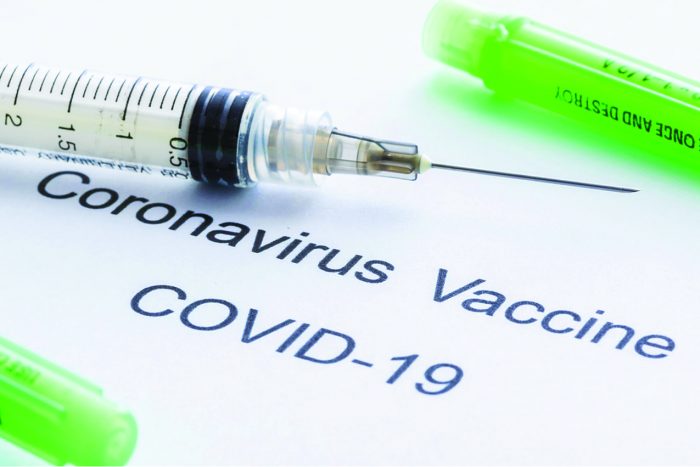UK COVID-19 vaccination success story
By Richard Tapp
Many TBR News Media readers have been frustrated at the slow, uneven COVID-19 vaccine rollout. With seemingly every friend in England saying, “I’ve just been vaccinated, how about you?” and with no personal appointment in sight, I asked Richard “Dickie” Tapp, of Burgess Hill, West Sussex, why he thought the U.K. vaccination scheme has been so successful.
As of mid-February, it is estimated that 21% of the total U.K. population has received the first dose, but with less than 1% fully vaccinated. In the U.S., the relative figures are 10% and 3%. I would add that the U.K. has a wider vaccination-acceptance culture, dating back to the smallpox and polio eras. Still, there could be rollout lessons for President Joe Biden (D) and Gov. Andrew Cuomo (D). The main difference is that U.S. citizens are having to fight overwhelmed state and big pharmacy websites for a paucity of appointments whereas, in the U.K., appointments are made by invitation for dedicated age groups. And the categories are not extended until each one is almost completed. — John Broven, TBR News Media copy editor
The rationale for the “working down through the age-groups” approach is to relieve pressure on the National Health Service [the publicly funded health care systems], which is on its knees. The “Kent” COVID mutation has driven the current surge in cases, proving to be far more contagious. Consequently, there have been far more hospital admissions than in the first wave in spring 2020. Intensive Care Unit doctors and nurses are exhausted, so it has been imperative to reduce the pressure on them. The older you are, the more likely you are to need hospitalization and possibly intensive care, hence the strategy to get the over-70s vaccinated as quickly as possible.
The main reason for the success of the U.K. vaccination campaign is that has been entrusted to the NHS, rather than one of the private sector companies with close associations to the governing Conservative Party which have made a mess of track and trace. The NHS is well versed in vaccination programs — for example, the annual winter-flu vaccination rollout — and so it’s right it should be entrusted with the task. Thanks heavens they got this one right. After a slow start, the NHS has been “on the money” although it is only fair to point out:
1. The army has been helping with the supply logistics, especially delivery.
2. The paperwork and supervision at vaccination centers are being largely handled by volunteers, such as the Lions and Rotary clubs. Also volunteers with some suitable experience — such as the Red Cross, St John Ambulance, retired nurses, etc.— have been trained in administering the vaccine. So, the burden hasn’t fallen totally on the NHS, which wouldn’t have been able to run the exercise just using its own resources.
The campaign works by the “patient” being contacted by their doctor’s office and offered an appointment, in the same way they would for a flu jab. However, in addition they are also contacted by their local NHS trust with a “we have reached your age group” letter offering an online link and a free telephone number by which to make an appointment. So, it’s a two-pronged approach. The strategy has been to work down though the age bands, first the over-80s, then in five-year bands ending with the 50-to-55 age group. To save general practitioner surgery telephone lines being overwhelmed, the instruction was to wait to be contacted and this has worked well. Dedicated vaccination centers have been set up at local community halls and venues — not just at hospitals and health centers.
The aim was to vaccinate all the 70-and-above group by Feb. 15. I had my doubts initially but the exercise has gone so well that on Feb. 8, Health Secretary Matt Hancock (Conservative) said that anyone over 70 who had not been contacted about an appointment should now get in touch with their GP surgery and/or phone the NHS free telephone number. That’s a reversal of the previous advice to wait to be contacted. Indeed, in some areas the rollout has gone so well that the 65-to-69-year-olds are now being vaccinated. I heard on local radio that the large seaside town of Eastbourne in Sussex is already calling forward this age group.
According to the Department of Health and Social Care, a quarter of adults have already received one dose, including around nine in 10 over-70s. My view is that the five-year age-banding strategy has been a good one. “Don’t bite off more than you can chew in one go” is a good adage.
I think I must add a couple of caveats:
1. The overall age-group percentage figure will be lower as there is still some resistance to the vaccine, especially in Black and
Asian communities.
2. The U.K. figures look good as they are those who have had the first jab. Very few have had the second jab. The U.K. vaccination committee took a gamble in moving the second jab to 12 weeks rather than the three weeks recommended by Pfizer and AstraZeneca. The gamble has paid off as the first jab is being shown to provide 50%-to-60% protection — enough to prevent serious illness — and the strategy has been endorsed by the World Health Organization. Of course, the rollout to the under-65s will slow as the 12-week anniversary of those who’ve had their first jab comes into play.
While I am proud of the vaccination rollout and the way volunteers have come forward, the downside is that is that it has given Prime Minister Boris Johnson (Conservative) his “get out of jail card.” People seem to have forgotten the disgraceful mortality figures and passing 100,000 deaths just four weeks ago. It’s a number which shames the country with so many of these due to the mistakes Johnson’s government made, yet the daily deaths — only recently under 1,000 per day — are now barely mentioned.







